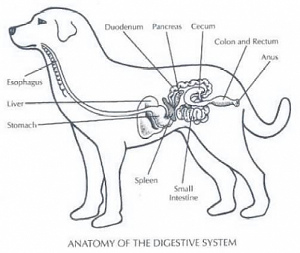 Indigestion is a broad term that covers problems that occur within the gastro-intestinal system, mainly the stomach and intestines (bowels). Digestion is simply the process of breaking food down with enzymes and body mechanics into substances that can be used by the cells of the body. Chewed food passes from the mouth, down the esophagus and into the stomach, where digestion begins. From the stomach, food passes into the small intestine, the first part of which is called the duodenum. The partially digested food then enters the large intestine, or colon, and then to the rectum, where stool is stored until a dog is ready to defecate.
Indigestion is a broad term that covers problems that occur within the gastro-intestinal system, mainly the stomach and intestines (bowels). Digestion is simply the process of breaking food down with enzymes and body mechanics into substances that can be used by the cells of the body. Chewed food passes from the mouth, down the esophagus and into the stomach, where digestion begins. From the stomach, food passes into the small intestine, the first part of which is called the duodenum. The partially digested food then enters the large intestine, or colon, and then to the rectum, where stool is stored until a dog is ready to defecate.
Digestive problems are not the same for people and pets. However, many of the terms are alike. For instance, colic is a condition marked by cramping pains from intestinal gas and abdominal spasms, and flatulence. Colitis is inflammation of the colon marked by diarrhea and constipation. Gastritis is an inflammation of the stomach’s lining. “Leaky gut” is thought to be a condition in which the lining of the bowels is altered or damaged in a way that makes it more permeable, allowing toxins, microbes, undigested food, waste, or larger than normal macromolecules to leak through an abnormally permeable gut wall, causing allergic reactions and other problems. 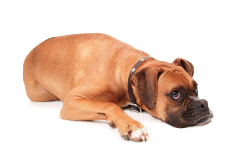 Irritable bowel syndrome (IBS) is a condition involving recurrent abdominal pain, gas, bloating, and diarrhea or constipation. It’s often associated with stress, depression, anxiety, or a previous intestinal infection.
Irritable bowel syndrome (IBS) is a condition involving recurrent abdominal pain, gas, bloating, and diarrhea or constipation. It’s often associated with stress, depression, anxiety, or a previous intestinal infection.
If your pet has gastric dilation, or bloat, the stomach will start to swell two to six hours after eating. The swelling is due to a buildup of gas and liquid, and the dog or cat will often drool, attempt to vomit, and try to eat grass. This is a serious condition and is most common in deep-chested, large breed dogs, particularly the Great Dane, Saint Bernard, mastiff and borzoi, who are fed commercial pet food. The gas buildup is often accompanied by a volvulus of the stomach, which is when the stomach has turned, rotating on itself, and preventing gas from escaping. The mortality rate in dogs with bloat ranges from ten to sixty percent, even with treatment. With surgery, the mortality rate decreases to fifteen to thirty-three percent. 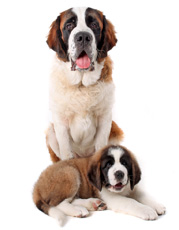
Symptoms of stomach volvulus include burping, enlarged abdomen, pacing, heavy panting, growling stomach, attempted vomiting, and heavy salivation. The dog will refuse to lie down because of the pain. This type of bloat occurs within minutes, so get your dog to a veterinarian as soon as possible. If your dog is susceptible to bloat, you ought to get a bloat kit and learn how to use the stomach tube as a first-aid measure.
Dogs and cats fed a raw diet made from fresh, natural foods don’t get these digestive problems. There may be some system disturbance when you first switch your pet to a new diet – diarrhea and such – but this passes once the body has rid itself of the toxins built up from the old food, and has adjusted itself to the new food.
Mild stomach upsets are usually caused by eating bad or indigestible food, or by eating too much food. Chronic stomach problems, though, can be a symptom of other ailments such as kidney, liver, or pancreas problems, or infections and parasites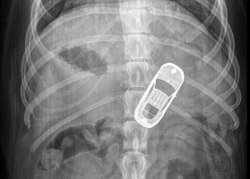 . Problems in other parts of the body can cause symptoms that seem like a gastro-intestinal issue.
. Problems in other parts of the body can cause symptoms that seem like a gastro-intestinal issue.
Also, sometimes something has been swallowed that needs to be taken out, such as a peach pit or a little toy. You need immediate veterinary help for that.
Herbal and Naturopathic Help
There are a number of things you can do to help your pet with digestive problems. First and foremost, though, is to feed a proper diet. There is no substitute for feeding a healthy, species-appropriate diet made from fresh, raw meats and other natural ingredients. See the diet section for more information.
If you suspect your pet may have bloat, described above, see a holistic veterinarian right away.
A proper feeding schedule is important for your dog or cat. Both species evolved on a famine and feast pattern. It is good for your pet to be hungry before eating. Some people like to leave food out for their cat, for example, but this is not good for the cat.
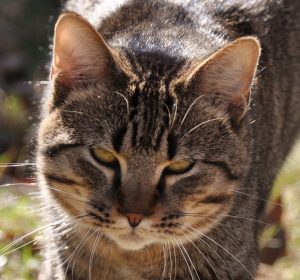 Cats should be fed once a day, and any food remaining in the dish after thirty minutes ought to be thrown out. Veterinarians have found that cats fed frequently throughout the day and cats who have food left out for them to nibble on are not in good health. They often have poor skin and coat, and they develop more urinary tract problems, such as cystitis. Cats are carnivores, and, as such, their bodies need a certain interval between feedings to properly digest food and eliminate toxic meat wastes.
Cats should be fed once a day, and any food remaining in the dish after thirty minutes ought to be thrown out. Veterinarians have found that cats fed frequently throughout the day and cats who have food left out for them to nibble on are not in good health. They often have poor skin and coat, and they develop more urinary tract problems, such as cystitis. Cats are carnivores, and, as such, their bodies need a certain interval between feedings to properly digest food and eliminate toxic meat wastes.
Dogs are natural scavengers, and their systems have adapted an ability to eat more frequently. Still, a twice a day feeding schedule allows time for your dog’s enzymes to work their natural course. In Keep Your Pet Healthy the Natural Way, Pat Lazarus interviews Dr. John Limehouse, a veterinarian who specialized in nutrition. He states, “In the wild, dogs stalk their food, they chase it, they struggle with it,  and after the kill, they play with it. So by the time they get ready to eat it, their bodies have worked up a crescendo of enzymes.” He believes that when pets are fed too frequently, they don’t have appropriate levels of enzymes to properly digest the food.
and after the kill, they play with it. So by the time they get ready to eat it, their bodies have worked up a crescendo of enzymes.” He believes that when pets are fed too frequently, they don’t have appropriate levels of enzymes to properly digest the food.
Also, pH levels vary depending on what our pets are eating and what stage of digestion their bodies are at. Feeding too frequently doesn’t allow time for the digestive system to get back to an optimal level of acidity for processing the new foods coming in.
Some nutritionists also believe that we ought to feed our pets protein at one meal and carbohydrates at another. Their reasoning is logical – they say that some enzymes break down meat and others break down complex carbohydrates. This is true. They say that while the meat enzymes are breaking down the protein,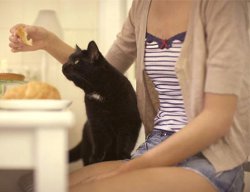 the carbs have to sit and wait.
the carbs have to sit and wait.
We believe, though, that feasibility and compliance are also important. Not many people are going to want to separate out their pet’s meat in one meal, and the grains and fruits and vegetables in another. And not many pets are going to eat a bowl of brown rice mixed with raw, grated broccoli and carrots. So, even though it may not be optimal, we think it’s fine to feed meats and carbs together. The health results we’ve seen from pets who eat their meats and carbs at the same time have been excellent. If you’re worried about the carbohydrates not being digested properly, you can add a digestive enzyme supplement to your pet’s meal.
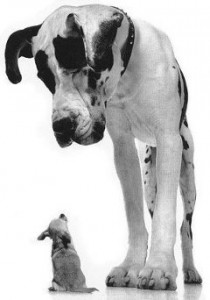 And if you believe your large dog is susceptible to bloat, feed two or three smaller meals instead of one large meal per day and do not feed a commercial pet food, particularly kibble. Watch for food sensitivities, reactions to certain foods, and give digestive enzymes with meals.
And if you believe your large dog is susceptible to bloat, feed two or three smaller meals instead of one large meal per day and do not feed a commercial pet food, particularly kibble. Watch for food sensitivities, reactions to certain foods, and give digestive enzymes with meals.
If stools contain undigested food, try adding a little apple cider vinegar to your pet’s food, along with digestive enzymes.
If your dog or cat has an upset gastro-intestinal tract and it’s not a chronic condition, a fast of pure water or a clear broth made by boiling a meaty bone and some vegetables will help. Fasting has a cleansing benefit. Dogs and cats in the wild evolved on a natural fasting schedule. And often when an animal is feeling sick, it will fast. See Fasting for more information.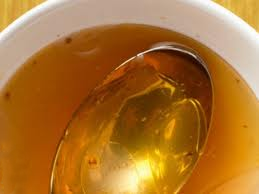
Many herbs are used as indigestion remedies for pets. For instance, chamomile tea works well to calm the stomach, alleviate nausea, and reduce gastro-intestinal inflammation. Serve the tea weak and allow no food for eighteen hours while your pet is cleansing its system.
For intestinal irritation, give herbs that are known for their demulcent or mucilaginous properties. These include slippery elm, comfrey root, oats, and arrow root.
If you suspect your pet’s indigestion is caused by an infection or bug, goldenseal is an antibacterial, anti-parasitic, and anti-viral herb that may be useful. Make a tea using ½ teaspoon goldenseal to two cups water. Let the tea cool, strain the goldenseal, and mix the tea with one cup water. You can give this remedy up to three times daily, and it helps if your animal is fasting at the time.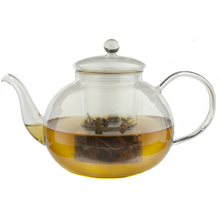
You can also make a peppermint tea for a dog or cat with indigestion, using the same method above. And if your pet has gas or flatulence, make the tea using aniseed, caraway seed, cardamom seed, or licorice root.
Ginger is an all-purpose digestive aid. You can supplement your pet’s diet with ginger using tea, capsules, fresh grated, or dried powdered ginger. If you have a juicer, and if your pet will drink it, carrot juice with some fresh ginger in it makes a good tonic. Oatstraw is also sometimes used for irritable bowel.
If your pet has eaten something bad and is having severe symptoms, and you can’t get to a veterinarian right away, activated charcoal is a tried and true remedy for removing toxins. Give one or two capsules with water every twenty minutes until symptoms subside.
Homeopathy
 Often the symptoms of gastro-intestinal problems are the same as the symptoms of many other diseases. Because of this, you need to get an accurate diagnosis from a holistic veterinarian trained in homeopathy before using a homeopathic treatment. Generally, if your pet has something simple like an upset stomach from eating something bad, a fast with fresh water or broth or one of the teas listed above will take care of it. If the condition is anything more severe than that, you need to take your dog or cat to a homeopathic veterinarian.
Often the symptoms of gastro-intestinal problems are the same as the symptoms of many other diseases. Because of this, you need to get an accurate diagnosis from a holistic veterinarian trained in homeopathy before using a homeopathic treatment. Generally, if your pet has something simple like an upset stomach from eating something bad, a fast with fresh water or broth or one of the teas listed above will take care of it. If the condition is anything more severe than that, you need to take your dog or cat to a homeopathic veterinarian.